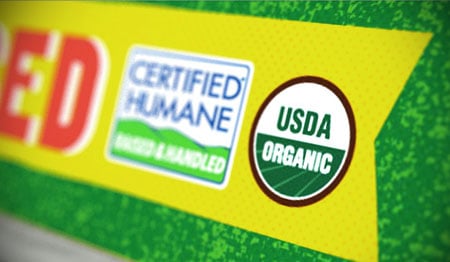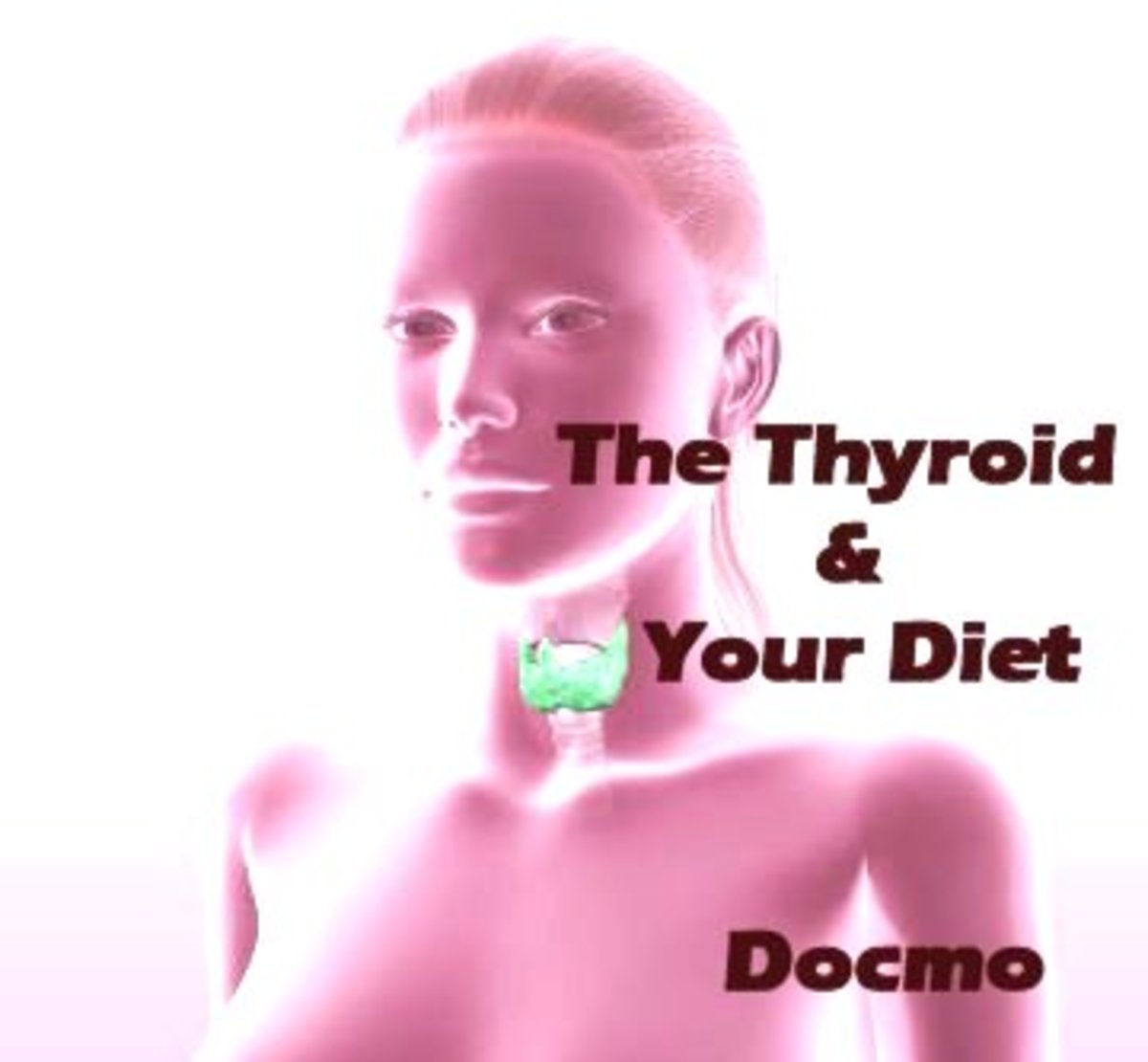Reading Egg Labels: What Is Your Egg Carton Telling You?

Learn to Separate the Truth from the Hype
For decades, Americans were warned to avoid the egg yolk. Loaded with what was considered artery-clogging cholesterol, we were urged to choose egg substitutes and pre-separated egg whites. Now, like so many other foods, what was once bad is good again.
As we flock back to our chicken eggs, U.S. egg producers have created certification-heavy packaging that features statements about their henhouses, the treatment of their chickens, the types of feed, their avoidance of antibiotics, and the type of benefits their eggs offer.
The following clarifies egg carton statements, labels, and certifications to help you make informed consumer decisions, including what language is empty marketing hype and what labels truly offer information on the quality of product and treatment of the hens.
Egg Buying Habits
What Eggs Do You Buy?

Egg Carton Labeling Terms
- Antibiotic-Free or Raised without Antibiotics: The flock was raised without the use of products classified as antibiotics for animal health maintenance or disease prevention. According to the National Chicken Council, animal health products not classified as antibiotics (such as some coccidiostats, which control protozoal parasites) may still be used. “Antibiotic free” is not allowed to be used on a label but may be found in marketing materials, which are not regulated by the U.S. Department of Agriculture.
- Cage-Free: The hens live without cages, usually inside large barns or warehouses. They are required to have outdoor access, but because the amount, duration, and quality of outdoor access is undefined, most do not have actual time outdoors. According to The Humane Society, Cage-Free certification permits beak cutting and forced molting through starvation. Cage-Free status does not mandate third-party auditing, but producers can choose to give weight to their claim by becoming certified according to the standard of one of the organizations below.
- Certified Organic: "USDA Certified Organic" eggs come from hens that are fed an organic, all-vegetarian diet free of antibiotics and pesticides. The hens must be housed cage-free. Like the cage-free hens above, outdoor access is not defined, so the hens may or may not see the outdoors. Hens may be de-beaked (to prevent pecking their peers) and starved (to induce molting, which leads to more egg production).
- Farm Fresh or Farm Raised: All chickens are raised on farms. Disregard these as meaningless marketing terms.
- Fertile: According to a 2011 Salon article, fertile means that the hens have access to a rooster, which also means they may be cage-free.
- Free-Range or Free-Roaming: According to the Humane Society, the use of this term is regulated for some poultry products, but not for egg production. Typically, free-range hens live uncaged inside barns and have some degree of outdoor access, but because there is no regulation of the term, there are no restrictions regarding what the birds can be fed and no requirements for the amount, duration, or quality of outdoor access. Because they are not caged, they can engage in many natural behaviors such as nesting and foraging. Beak cutting and forced molting through starvation are permitted. There is no mandatory third-party auditing, but producers can choose to become certified according to the standards and requirements of one of the organizations below. Free-Roaming is a synonym for Free-Range
- Hormone-free: This is another unregulated marketing term. Hens never get treated with hormones.
- Natural or All-Natural: Chicken eggs are natural products. This is another meaningless marketing term that doesn't relate to animal welfare or nutrition.
- Omega-3 Enriched: The hens were fed either fish oil or flaxseed. You get the omega-3 second hand. However, omega-3 eggs are unregulated, so you have no idea how much and what type of omega-3 you're actually getting.
- Pasture-Raised: This is another unregulated term that only has meaning if the producers choose to become certified with one of the below organizations by meeting their regulations and completing their auditing processes. Typically, pasture-raised hens are kept outdoors for most of the year, on a spacious pasture covered with living plants. They are kept indoors at night for protection. On the pasture, they can engage in many natural chicken behaviors, such as dust-bathing and foraging. Debeaking and starvation are still allowed.
- Pasteurized: Eggs are heated to about 110 degrees Fahrenheit for half an hour or longer in order to pasteurize them. There is no regulation of this term, and it has no affect on animal welfare. However, you might feel more comfortable drinking raw egg shakes or making old-fashioned egg nog with pasteurized eggs than with non-pasteurized. Otherwise, pasteurization of eggs doesn't add to the nutritional value of the egg.
- Vegetarian-Fed: This term means that the hens are given feed that contains no animal by-products. According to the Humane Society, this labeling term usually means that the chickens have no access to foraging outdoors. Shockingly to many of us city people, chickens actually are omnivores. When allowed to forage outdoors, they will eat bugs, mice, and any other animal small enough for them to peck and swallow.

Finding Eggs from Pasture-Raised Chickens
For both health and humane reasons, increasing numbers of people are searching for more than organically fed, free-range chickens and seeking local suppliers of fresh eggs from pasture-raised chickens. Raised outside, except in inclimate weather, pasture-raised hens spend their time pecking and scratching, perching, eating bugs and vegetation on, generally, organic farms.
If you have never had an egg from a chicken who lives the way chickens were meant to live, you are in for a treat. The yolks are bright yellow to orange orbs that float beautifully in the whites. When cooked, the yolks retain a strong yellow. You can really see where the term "sunny side up" originated.
Pasture-raised chicken eggs are easier to find than one may think. A simple Google search will produce multiple sites that help individual consumers find local sources for eggs, as well as for pasture-raised, grass-fed beef and dairy products from grass-fed, humanely treated dairy cows.
Shopping Summary
In short, remember:
- Many labels are unregulated marketing hype (e.g., Farm Fresh, No Hormones, Natural).
- Many labels are unregulated and meaningless without producer certification.
- Learn about the differences in egg producer certifications.
- Purchase to fit your budget.
What Do Certifications Mean for Egg Production?
Some certifications are better than others. Different certifications offer credibility (or not) to the above claims of egg producers. Some of these certifications are hard to obtain but give consumers confidence that their eggs come from farms with true concern for animal welfare and, perhaps then, better nutritional quality of the eggs.
According to The Humane Society of the United States, scientific evidence demonstrates that these cages are detrimental to animal welfare. Nearly every major US and EU animal welfare group expresses serious concern about caged poultry.*
- Animal Welfare Approved: This is the gold-standard of animal welfare standards among third-party auditors. Animal Welfare Approved is a program of the Animal Welfare Institute. Unfortunately, it only certifies flocks of less than 500 hens. The small farms who do obtain this certification must conform to the following regulations: birds must be cage-free with at least 1.8 square feet of floor space per bird; hens must be able to perform such natural behaviors as nesting, perching, and dust-bathing; hens must also be provided continuous access to an outdoor area for ranging and foraging, and this outdoor area must be covered with growing vegetation and at least 4 square feet per bird. Mandates are also given for stocking density, perching, and nesting boxes. Forced molting through starvation and beak cutting are prohibited. Feed containing meat or animal by-products is also prohibited. Visit animalwelfareapproved.org to find product in your area.
- Certified Humane: This Humane Farm Animal Care program is endorsed by The Humane Society of the United States and the American Society for the Prevention of Cruelty to Animals (ASPCA). It offers three levels of certification: (1) regular (cage-free); (2) free range; and, (3) pasture-raised. Forced molting through starvation is prohibited, but beak cutting is allowed. For cage-free certification, the birds are uncaged inside barns but may be kept indoors at all times. They must be able to perform natural behaviors such as nesting, perching, and dust-bathing. Certification includes requirements for stocking density and number of perches and nesting boxes. For free-range certification, the birds must be provided with access to an outdoor area for at least six hours per day. The outdoor area does not have to include any living vegetation, but it must provide each hen with at least 2 square feet of outdoor space. For pasture-raised certification, the birds must be placed on a pasture for at least six hours per day, 12 months per year. The pasture must be covered mainly with living vegetation, and each bird must be provided with 108 square feet of pasture. Compliance is verified through third-party auditing. Eggs that carry the Certified Humane label can be found in many national and regional groceries. Visit certifiedhumane.org for a list of certified egg producers.
- American Humane Certified: According to AnimalLaw.info, nearly two-thirds of U.S. egg producers participate in one of this program's four certification levels: enriched colony cages; cage-free; free-range; or, pasture. This American Humane Association program allows beak cutting but prohibits forced molting through starvation. For colony cage certification, each hen who is confined has 0.8 square feet of space (less than the space of a legal-sized sheet of paper). For cage-free certification, the birds are kept uncaged inside barns but may be kept indoors at all times. Each hen must be provided with 1.25 square feet of floor space and access to perches and nesting boxes. For free-range certification, each hen must have 21.8 square feet of outdoor space, though the certification has no minimum durational period of outdoor access. For pasture certification, each hen must have 108 square feet of outdoor space on a pasture with a substantial cover of living vegetation. Again, no minimum durational period of pasture access is specified. Compliance is verified through third-party auditing.
- Food Alliance Certified: A program of Food Alliance, this certification is for cage-free hens. Each bird must be provided with at least 1.23 square feet of floor space. Access to outdoors or natural daylight is required for at least eight hours per day. If an outdoor area is provided, it must have living vegetation. The certification mandates specific requirements for perches and nesting boxes. Forced molting through starvation is prohibited, but beak cutting is allowed. No meat or animal by-products are permitted in the poultry's feed. Compliance is verified through third-party auditing. Visit foodalliance.org for an interactive map of certified producers.
- United Egg Producers Certified: This is a meaningless certification. According to the Humane Society, this United Egg Producers program "permits cruel and inhumane factory farm practices." The program offers two certifications: caged; and, uncaged. Forced molting through starvation is prohibited, but beak cutting is allowed. For caged certifications, hens have only 0.46 square feet of cage space per bird. That is significantly less area than a piece of lined notebook paper (0.77 square feet). Hens are confined in restrictive, barren battery cages and cannot perform many of their natural behaviors, such as perching, nesting, foraging or even spreading their wings. For cage-free certification, hens are uncaged inside barns but may be kept indoors at all times. Each hen must be provided at least 1 square foot of floor space. Minimal perching and nesting requirements exist for cage-free certification. Compliance is verified through third-party auditing.
*According to both The Humane Society and AnimalLaw.info, nearly all hens in commercial egg operations—caged or cage-free—come from hatcheries that kill all male chicks shortly after hatching. The males are of no use to the egg industry because they don't lay eggs and aren't bred to grow as large or as rapidly as chickens used in the meat industry. However, information found on the Animal Welfare Approved website indicates encouragement of use of males for meat production, if not yet a certification requirement.
Informed Purchases
Now that you have more understanding of the labels and the certifications, you can choose the eggs that most closely fit your budget and your principles.
Sources
- Animal Welfare Approved. animalwelfareapproved.org
- The Humane Society of the United States. humanesociety.org
- Lam, Francis: "What 'cage-free,' 'fertile' and other egg labels mean." 2011: Jan. 28. Salon.com,
- Rodriguez, Sheila: "The Morally Informed Consumer: Examining Animal Welfare Claims on Egg Labels." Temple Journal of Science, Technology & Environmental Law. Michigan State University: Animal Legal & Historical Center. www.animallaw.info
© 2014 Caroline Paulison Andrew



